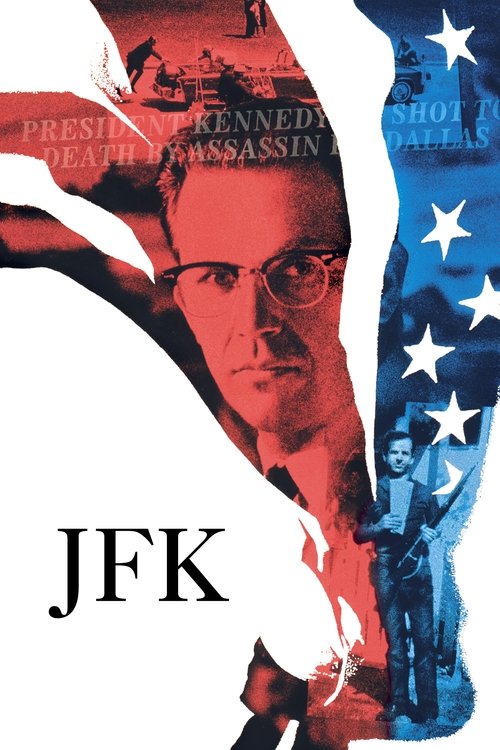
Title: JFK
Year: 1991
Director: Oliver Stone
Writer: Oliver Stone
Cast: Kevin Costner (Jim Garrison),
Tommy Lee Jones (Clay Shaw),
Gary Oldman (Lee Harvey Oswald),
Kevin Bacon (Willie O'Keefe),
Michael Rooker (Bill Broussard),
Runtime: 188 min.
Synopsis: Follows the investigation into the assassination of President John F. Kennedy led by New Orleans district attorney Jim Garrison.
Rating: 7.598/10
Shadows of Truth: Oliver Stone’s JFK as a Cinematic Crucible
/10
Posted on August 3, 2025
Oliver Stone’s JFK (1991) is less a historical document than a fevered alchemical brew, transmuting raw skepticism into a mesmerizing inquiry about truth and power. Anchored by Kevin Costner’s steely yet vulnerable Jim Garrison, the film transforms the New Orleans district attorney’s quixotic investigation into President Kennedy’s assassination into a sprawling meditation on America’s fractured trust in its institutions. Stone’s direction is the film’s beating heart, wielding a kinetic blend of documentary-style footage, newsreels, and dramatized sequences to create a disorienting mosaic that mirrors the conspiracy’s labyrinthine nature. His audacious editing, guided by Joe Hutshing and Pietro Scalia, doesn’t just recount events it interrogates them, stitching together perspectives with a rhythm that feels like a pulse racing toward revelation.
The screenplay, co-written by Stone and Zachary Sklar, is a triumph of ambition, though not without flaws. It juggles an immense cast of characters and theories, sometimes sacrificing clarity for density. Yet this very sprawl is its strength, reflecting the chaotic multiplicity of a nation grappling with loss. Costner’s Garrison is the moral compass, his earnestness a counterpoint to the film’s cynicism, though some monologues veer into didacticism, momentarily flattening the narrative’s nuance. The ensemble Tommy Lee Jones’ slippery Clay Shaw, Gary Oldman’s chillingly precise Lee Harvey Oswald lends texture, each performance a shard in Stone’s kaleidoscope.
Cinematographer Robert Richardson’s work is revelatory, bathing New Orleans in a humid, conspiratorial glow. His camera prowls through smoky backrooms and gleaming courtrooms, capturing the tension between public facade and hidden machinations. John Williams’ score, with its somber brass and insistent percussion, underscores the urgency without overwhelming the drama, a delicate balance that amplifies the film’s emotional weight.
JFK falters when it leans too heavily on its own convictions, occasionally blurring the line between inquiry and advocacy. The three-hour runtime, while justified by its scope, can feel indulgent, particularly in the courtroom climax where rhetoric overshadows evidence. Yet these are minor quibbles in a film that dares to ask not just who killed Kennedy, but why we’re so desperate for answers. Stone doesn’t solve the mystery he ignites a dialogue, one that burns with relevance decades later.
0
0
